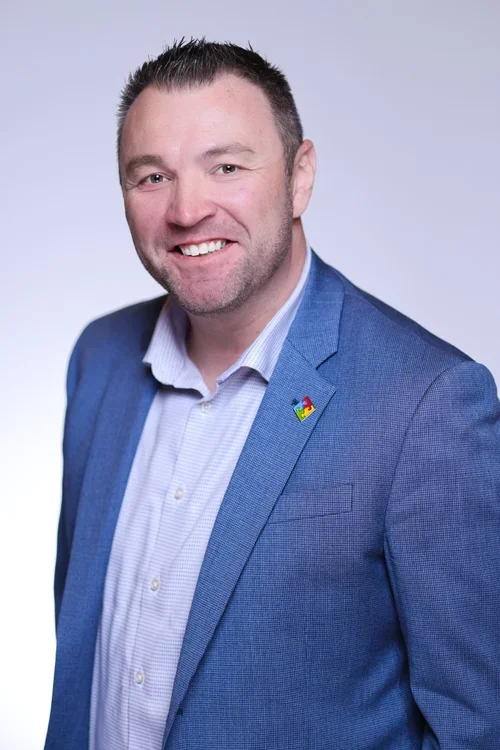
Clinical Services
Grant a Gift Autism Foundation - Ackerman Center in alliance with UNLV Health provides clients and families with a multidisciplinary team of physicians, psychologists, behavioral therapists, speech-language pathologists and case managers, for a comprehensive diagnosis, treatment plan, follow-up care and support services.
Have questions? Visit our FAQs for answers about General Information, Accepted Insurance Providers and more.
Our Services
-
Developmental-behavioral pediatricians evaluate, provide counsel, and treatment for children, adolescents, and their families with a wide range of developmental and behavioral difficulties. The main role of a developmental-behavioral pediatrician is to evaluate children who are not developing, learning, or behaving the way their peers are.
-
Our neuropsychologists conduct evaluations for children from birth to 21 years of age. This evaluation is used to diagnosis a variety of medical, developmental, behavioral, and social-emotional disorders which aid in creating treatment plans for the children. Evaluations consist of a broad range of testing including IQ, academics, memory, behavior, social-emotional, and motor.
-
A child neurologist has special training in disorders of the brain. This includes autism but also epilepsy, migraines, tics, sleep disorders and ADHD. They help identify and treat neurodevelopmental conditions to improve quality of life. Child neurologists have special training in pediatrics and neuro developmental conditions. We see children with delays and help diagnose why they may have those delays. If possible we also treat those delays by referring for therapies or other treatments. A child with speech or motor delay may be seen by a child neurologist. Sometimes testing is ordered to find the underlying cause for delays- this can often give families answers to their concerns.
-
From ages 1 – 4 years old, the Early Start Denver Model is a recommended treatment for ASD in infants and toddlers. This intensive program combines therapist intervention and parent training and education. The model uses naturalistic teaching principles from the Denver Model, Applied Behavior Analysis, and Pivotal Response Training. It follows the natural developmental progression in all areas of development with a primary focus on three critical areas: imitation, affect sharing and referential communication. Progress is monitored every 12-weeks by a Board Certified Behavior Analyst to individualize and modify treatment plans.
-
Applied Behavior Analysis therapy is an individualized intervention. Our program offers comprehensive one-to-one programming from ages 3-7 years old and focused programming from ages 7 to 18 years old. Our ABA treatment is centered on evidenced-based principles and methods used to improve socially significant behaviors, which can include natural environment teaching, functional communication training, reinforcement, and discrete trial teaching. Clients benefit from intake assessments and evaluations, individualized programming based on their strengths and barriers, as well as ongoing supervision by Board Certified Behavior Analysts.
-
Designed for ages 8-18 with autism spectrum disorder, Fetal Alcohol Spectrum disorder, and other neurodevelopmental disorders that requires additional age-appropriate support for social limitations. We help the child lean the skills necessary to develop and maintain friendships including social communication, play, and life skills in a nurturing environment.
-
Designed for ages 15-21 with autism spectrum disorder, Fetal Alcohol Spectrum disorder, and other neurodevelopmental disorders to address the needs required to live a life of maximum independence for the individual and the family unit. We help the teen and young adult become more independent with adaptive and social skills. Each week clients develop and maintain social communication and learn a new adaptive skill to generalize in the home and community environment. Adaptive skills include maintaining a household, caring for personal needs, buying & preparing food, buying & caring for clothing, recreation & leisure, choosing & accessing transportation, navigating the community.
-
Speech therapy, provided by Speech-Language Pathologists, addresses a wide range of communication difficulties including speech sound disorders, reading, and writing challenges, traumatic brain injury, language barriers, augmentative and alternative communication, auditory processing issues, feeding and swallowing difficulties, and more. The primary goal is to enhance verbal and non-verbal communication skills in individuals of all ages, helping them express themselves effectively. Through personalized treatment plans, speech therapy aims to improve overall quality of life by promoting successful communication in various contexts.
Read Every Voice Matters to learn how we can better support communication for children with autism and other neurodevelopmental disorders.
-
Occupational Therapy (OT) is about increasing participation in the activities of daily life. “Occupations” are things in life people need to, want to do, and are expected to do. OT is tailored to your child’s and family’s needs, helping to overcome challenges like sensory processing difficulties, motor skills delays, and environmental barriers. OT sessions use play-based interventions based on theories of practice and clinical reasoning.
Video Resources
Latest News
In Need of Support?
We’re Here to Help
Contact our team for questions on diagnosis, treatment or other patient related services.






